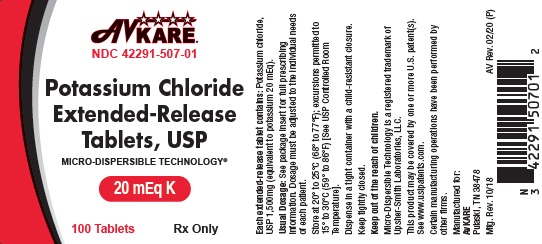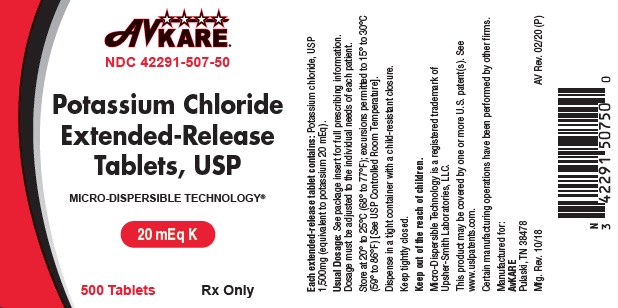
Potassium Chloride | Avkare while Breastfeeding
What is Potassium Chloride | Avkare used for?
I am breastfeeding mother and I am using Potassium Chloride | Avkare. Can it have any bad effect on my kid? Shall I search for better alternative?

Nursing Mothers The normal potassium ion content of human milk is about 13 mEq per liter. Since oral potassium becomes part of the body potassium pool, so long as body potassium is not excessive, the contribution of potassium chloride supplementation should have little or no effect on the level in human milk.
Potassium Chloride | Avkare Breastfeeding Analsys
Potassium chloride while Breastfeeding
SafeCAS Number: 7447-40-7
Human milk has a potassium concentration of 13 meq/L, almost a half of rehydration solution content and a quarter of maximal IV recommended dose. Potassium supplementation does not alter milk concentration without increasing mother’s serum concentration, which is strictly limited from 3,5 to 5,5 meq/L.

What should I do if I am breastfeeding mother and I am already exposed to Potassium Chloride | Avkare?
Potassium Chloride | Avkare is safe in breastfeeding and should not create any health problem for your baby but in case you feel any health issue associated with Potassium Chloride | Avkare you should contact your doctor or health care provider. Be it pregnancy or lactation you shall keep your doctor informed.
I am nursing mother and my doctor has suggested me to use Potassium Chloride | Avkare, is it safe?
Definitely, Potassium Chloride | Avkare is safe in lactation for baby. No wonder your doctor has recommended it.
If I am using Potassium Chloride | Avkare, will my baby need extra monitoring?
No extra baby monitoring required while mother is using Potassium Chloride | Avkare
Who can I talk to if I have questions about usage of Potassium Chloride | Avkare in breastfeeding?
US
National Womens Health and Breastfeeding Helpline: 800-994-9662 (TDD 888-220-5446) 9 a.m. and 6 p.m. ET, Monday through Friday
UK
National Breastfeeding Helpline: 0300-100-0212 9.30am to 9.30pm, daily
Association of Breastfeeding Mothers: 0300-330-5453
La Leche League: 0345-120-2918
The Breastfeeding Network supporter line in Bengali and Sylheti: 0300-456-2421
National Childbirth Trust (NCT): 0300-330-0700
Australia
National Breastfeeding Helpline: 1800-686-268 24 hours a day, 7 days a week
Canada
Telehealth Ontario for breastfeeding: 1-866-797-0000 24 hours a day, 7 days a week
